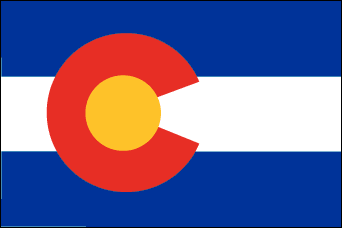DENVER — The most populous city in Colorado is considering limiting the number of service stations that can be built.
Denver has a population of 716,234 and there are 180 gas stations.
The problem, as city officials see it, is there are too many within one area. They cite a one-mile stretch of the city where nine gas stations operate.

The proposal would limit the number of station permits in Denver to 215, modeling it after the suburb of Louisville which enacted a similar restriction.
It would establish a zoning change that would ban development of a gasoline station within 1,000 feet of another, within 300 feet of residential properties, and within a yet-as-to-be-determined buffer zone from bus and light rail. Grocery chains that have gas stations would be exempt for the convenience of consumers.
The proposal is billed as providing more room for housing, other business enterprises, and walking — as well as reducing air pollution.
One council member said she would like to see more coffee houses in the area.
It is the latest in a series of attempts to curtail the proliferation of certain businesses. Last year Denver re-zoned a stretch of Colfax Avenue, restricting new businesses such as drive-throughs and storage units.
"As Denver continues to grow," said Councilwoman Diana Romero-Campbell, "we look forward to responding to residents' needs, including thoughtful planning around land use..."
Opponents say the restriction isn't needed as demonstrated by the current high usage of existing stations in the so-called densely crowded areas. They said the one-mile stretch cited as overcrowded is a busy corridor that commuters use to get to work and who would not want to go out of their way to get fuel. Restricting development near housing causes the same problem. People need nearby outlets.
Another argument is that a limit on the number of gasoline stations to be built would deprive areas where there currently are too few. City officials concede a total ban would do just that, so they do not want to set an unfair cap.
The bill is still a work in progress. It was scheduled to go before the planning board last month and to the City Council this month.
BOULDER — A Wyoming legislator, hoping to make points with voters in a state highly dependent on the coal, oil, and gas industries, called for Boulder, which has enacted many anti-pollution measures, to be stripped of its fossil fuel infrastructure to test how well that would work out.
"Take out all their gas stations. Take away all their internal combustion engines — cars. Take away their highways and streets. We fill the open space with windmills and solar panels, and we'll see if we can actually run a city of 100,000 people with no fossil fuels whatsoever," said U. S. Rep. Harriet Hageman.
Her joking suggestion drew an immediate fiery response from Boulder city officials. "One of the things that make people so leery of politics and politicians is when people make ridiculous suggestions like that," said Boulder City Councilman Mark Wallach. "I deal in the real world, not in her fantasy world."
LAKEWOOD — Cobblestone Car Wash is the only car wash in the state where workers belong to a union.
Employees voted earlier this year to join the UFCW Local 7. The union worked quietly to keep owners in the dark until the last minute.
The workers claimed they did not make enough money and had no voice in the workplace.
DENVER — The state's minimum wage went up in January to $14.42 an hour. Denver's is even higher, at $18.29 an hour.
ASPEN — A rehabilitation clinic claims Tianeptine, an opioid antagonist that activates some of the same areas of the brain as opioids do, is so readily available that it has earned the nickname of "Gas Station Heroin."
An official of Aspen Ridge Recovery Center said the drug was developed to treat depression and anxiety, but is marketed as a supplement and is widely sold, even at some convenience stores.
COLORADO SPRINGS — Police who recently reclaimed $3,000 worth of gasoline from siphoners explained recently how the crime worked.
The thieves used specialized trucks that siphoned gas directly out of the underground tanks. The trucks were equipped with a drop-down shade to conceal the theft.
CENTENNIAL — A driver trying to elude police lost control at 100 miles an hour on a curve and careened into a Conoco gas station here, knocking over pumps and causing $30,000 worth of damage.
COLORADO SPRINGS — The Maverik Company gave $25,000 to the Mt. Carmel Veterans Service Center to celebrate the rebranding of one of its gasoline stations from Kum & Go to Maverik. The station was part of the purchase of all the Kum & Go stations in Colorado a year ago.
Bob McLaughlin, executive director of Mt. Carmel, said the money will help feed hundreds of veterans and their families who are struggling.
LARKSPUR — The Larkspur Corner Market says it is not just a convenience store. It is a deli and pizza parlor with custom pizza — and gas pumps.
It features two picnic tables for outdoor eating, a wheelchair entrance and a parking lot. It also offers same-day delivery.
Owned by Randy Lombardo, it is the town's only gasoline retailer.
COLORADO SPRINGS — A historical note: in 1924 Colorado Springs was bragging about a surge in new gas stations.
There were more than 100 stations in operation, including sidewalk pumps, according to the Gazette Telegraph, which noted all were thriving.
"Attendants spent the day switching the gasoline hose from one car to another. They sold about 50,000 gallons of fuel and received about $10,000. It was the busiest day in the the history of gasoline business in the Pikes Peak region."
Originally published in the September 2024 issue of the O&A
Marketing News.
© KAL Publications Inc. 2024
